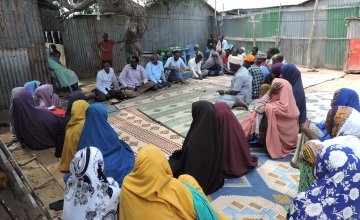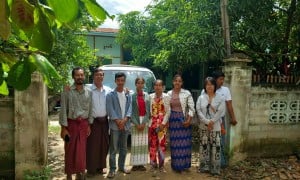
Read our 2024 annual report

Knowledge Hub
Knowledge Matters – Community Engagement
Welcome to the latest edition of Knowledge Matters, published in December 2020, which gives an overview of the various ways Concern engages with communities in our development and humanitarian work.

This issue of Knowledge Matters is an opportunity to examine some of the different ways we work in communities in different countries and contexts.
The issue begins with a thought piece on the evolution of approaches to community engagement since the 1990s and how Concern engages with communities in 2020. Next, we visit Somalia to explore the Building Resilient Communities in Somalia consortium’s approach to community engagement. We then have two articles from Kenya, firstly examining the results of research into the Community Conversations approach and secondly exploring the rich experience of using this approach across all sectors and programme types in Kenya.
We turn to Bangladesh next with an article examining the use of Community Resilience Vision Statements to introduce a complex flood resilience methodology, followed by another article that looks at the use of ‘Change Makers’ to engage communities in a livelihood security programme. We then explore community engagement in the fragile and conflict-affected context of the Central African Republic and look at how our team have adapted several of these methodologies to the post-conflict context there. Finally, we end with an article exploring the success of the education programme in Somalia and their use of Community Education Committees.
This publication covers aid activities implemented with the financial assistance of several donors, including Irish Aid, UK Aid, The European Union and USAID. The ideas, opinions and comments herein are entirely the responsibility of the author(s) and do not necessarily represent or reflect the policies of any donors.




